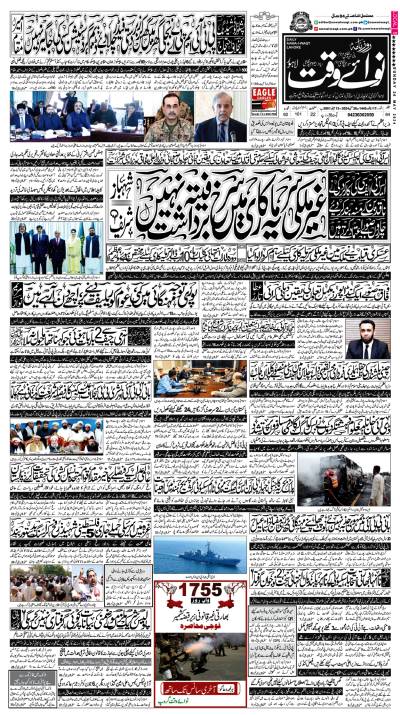When King John reluctantly signed the Magna Carta in London on June 15, 1215 the rule of the Royal Court or ‘darbar’ came to an end. An era of individual freedom and political liberties was ushered in. The rule of law, justice and fair trial started for which a ‘sarkar’ or government structure was created over which the King had no say or influence. Western democracy and the development that we see today was because of this great charter. Even the Viceroys of India were appointed by an elected parliament to whom they were accountable. The infamous Victorian laws like the 1930 Government of India Act which continues to dominate us till today were all passed by the British parliamentary system.
Unfortunately, the Viceroys of Pakistan moved the republic back to the ‘darbari’ system; most ‘sarkaris’ were converted to ‘darbaris’ in return for the benevolence of the self-proclaimed royals. Debate, discussion and dissent became hazardous business. A few weeks ago, I was sitting with a senior government officer of the Punjab government who made an interesting remark. According to him, if a convicted Nawaz Sharif calls a civil servant from his jail cell for a favour, hardly anyone will have the courage to refuse him. I am sure the same may be true for Asif Zardari as well. Despite being a constitutional democracy since August 1973, the republic has been run more like a darbar; this must change for a prosperous and democratic Pakistan.
In the 20th year of the 21st century the ‘sarkar’ does not exist in the Islamic Republic of Pakistan. ‘Darbaris’ rule over us, mostly from the Zia Dark Ages and Musharraf’s misrule. No one seems to be interested in the constitution of the republic while everyone talks about it. These days, there is a lot of debate on the infamous 18th Amendment that has cut the federal government to size to be replaced by four Islamabads (Peshawar, Lahore, Karachi, Quetta). There is widespread support for devolution as long as the power game stops at their desk and is not devolved further. In 1973, Article 25 A of the original document declared literacy to be a right of the citizen to be provided by the state, with two years relaxation; by 1985 every Pakistani had to be literate. Finally, after lots of slippages the clause was restored with a new deadline of August 2016 which has not been met. In order to meet the constitutional requirement, I have already appealed to the federal and provincial education ministers to ensure that every five-year-old should be provided space in a primary school by 2021 together with a unified curriculum.
Today, there are about twenty brands of Muslim Leagues, three brands of Jamiat, and so on. In 1967, Zulfiqar Ali Bhutto announced the formation of his People’s Party at the YMCA Hall on Shahrah-e-Quaid-e-Azam; Imran Khan launched his Pakistan Tehreek-e-Insaf in 1996 again in the provincial metropolis. As such till today, there are only two real political parties in the land of the pure; PPP(Bhutto) and PTI, the rest are the products of the ‘darbars’. Unfortunately, these two parties have also been infested with the lethal-for-the-democratic-order ‘darbaris’.
With ‘darbaris’ ruling over us we are still in the 13th century when ‘darbar and sarkar’ were unified. Seeing our state, King John must be turning in his grave on signing the Magna Carta under pressure from the rebellious barons. Is there no one in the land of the pure to ensure constitutional rule of law? The fundamental document that establishes and then regulates the ‘sarkar’ has to be followed in letter and spirit to dismantle these outdated and primitive modes of governance through ‘darbars’ and their operatives. Pakistan needs a magna carta, followed by a massive institutional clean-up to restore the ‘sarkar’ that once governed the land of the pure.
Sunday, May 26, 2024
Royal courts and governmental structures
The writer is Ex-Chairman Pakistan Science Foundation, email: fmaliks@hotmail.com
PM Shehbaz, PPP delegation discuss political situation
10:53 AM | May 26, 2024
Princess Zahra arrives in Chitral
May 26, 2024
RMC hosts 6th national research conference
May 26, 2024
KP budget jugglery of words: Muqam
May 26, 2024
Taiwan Escalation
May 26, 2024
Salaries & Pensions
May 26, 2024
Controlling Mobs
May 26, 2024
An Effective Registry
May 25, 2024
Economic Respite
May 25, 2024
History’s Biggest Fraud
May 26, 2024
Self-Medication
May 26, 2024
A Call for Reform
May 26, 2024
Natural Resources in Balochistan
May 25, 2024
Tribal Disputes
May 25, 2024
ePaper - Nawaiwaqt
Advertisement
Nawaiwaqt Group | Copyright © 2024





